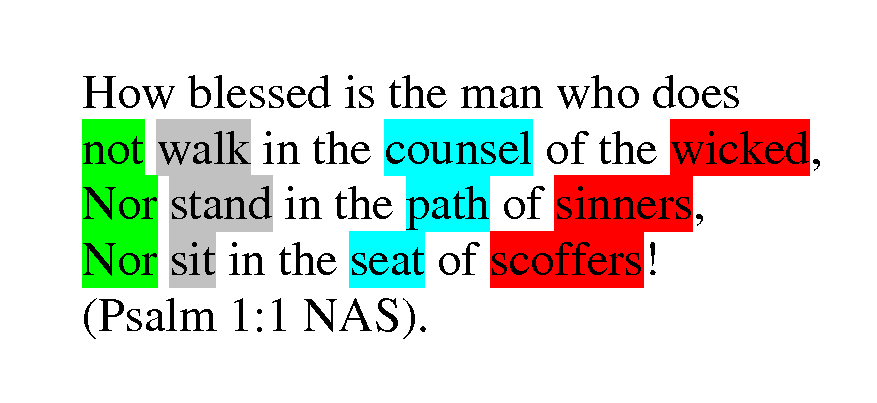
It’s best to begin a series of reflections on the psalms with the first one, specifically the first verse.
I love the literalness of the NAS (like the ESV), but this time the translation needs help. While the Hebrew word here, ish literally means “man” or “husband,” I like how the various translations generalize here to include men and women more broadly: TNIV & the NET (“the one”), the NJB (“anyone”) and the NRSV & TLT (“those”). If a specific man is going to be blessed for avoiding these behaviors, it makes sense that both men and women more generally will also receive those blessings.
One place where the literalness of the NAS helps is seeing the parallel nature of this first verse of the Psalter, which better emphasizes the natural process the verse is describing. This person is blessed, but we don’t know what they are doing right yet. All we know so far is what they are not
doing. Notice the progression from walking (active), to standing (less active), to sitting (totally passive). It’s a process of becoming increasingly
sedentary. This hypothetical person avoids first walking along with, then standing nearby and finally sitting among the wicked, sinful scoffers. For this reason, they are blessed.
It’s hard to know what these wicked sinners are involved with, but judging how the verse ends with scoffing, it sounds like criticism or cynicism is part of the problem. There is something wonderfully enlightened about being a cynic. They seem so intelligent as they critique everything and tear it down. It’s tempting to go sit with them, to not only listen to them, but to share one’s own scintillating pessimistic insights about life. Except, the psalmist warns us, that path does not lead to blessing.
What do you think these scoffers were doing while they were sitting there?
